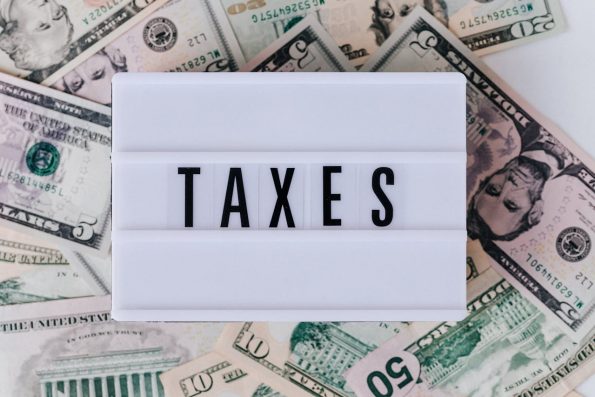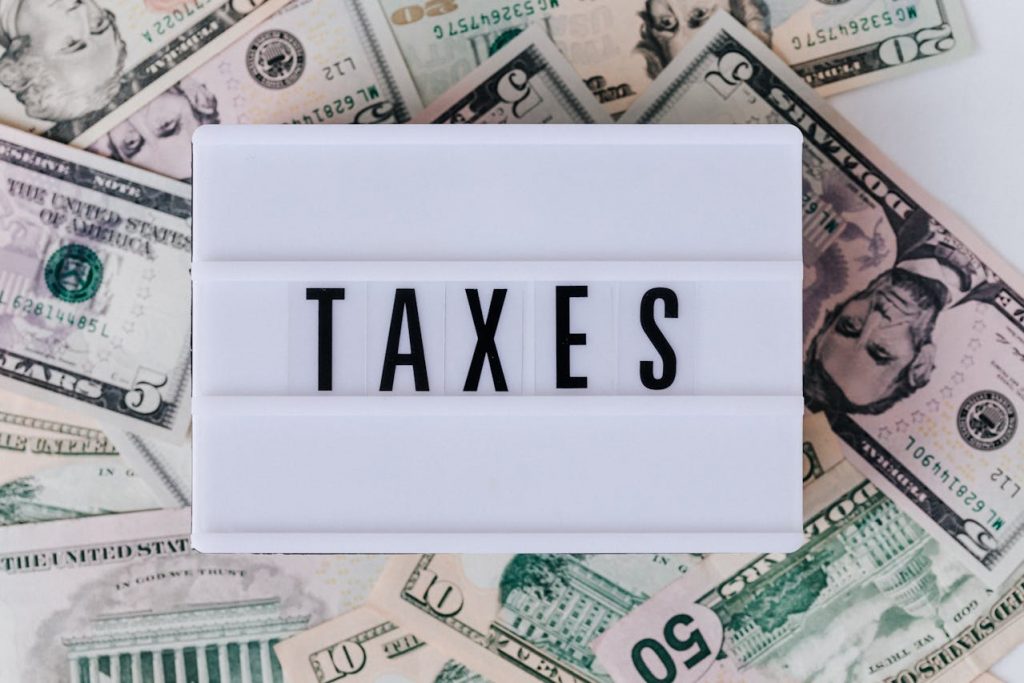Tips that Can Help You Save Money on Your Taxes
Tax season can be a daunting time for many, with the complex maze of rules and potential payments looming large. However, with the right approach and understanding, it’s possible to significantly reduce your tax liability and save money. Effective tax planning involves more than just meeting deadlines; it requires a strategic approach to deductions, credits, and income management. By leveraging various tax-saving strategies, individuals can maximize their potential refunds or minimize the amounts they owe. This article offers practical tax tips that can help you navigate your taxes more effectively and take advantage of opportunities to save.

1. Maximize Deductions
One of the most straightforward ways to reduce your tax bill is by maximizing your tax deductions. Deductions decrease your taxable income, decreasing the money you owe in taxes. Common deductions include mortgage interest, state and local taxes, charitable contributions, and medical expenses. It’s essential to keep thorough records and receipts throughout the year to substantiate these claims. Additionally, staying updated on changes in tax laws each year can help you identify new deduction opportunities that may arise.
2. Understanding Bonus Repayment Claims
If you’ve received a bonus from your employer that you later had to repay, you might be wondering how to get tax paid back for bonus repayment. The IRS allows taxpayers to claim a deduction for the repaid wages if the amount repaid exceeds $3,000, using a tax credit method or a deduction method, depending on the situation. This can significantly reduce your taxable income. It’s important to consult with a tax professional to ensure you’re applying this provision correctly and to maximize your potential savings.
3. Take Advantage of Tax Credits
Unlike deductions, which decrease the amount of income subject to tax, credits directly reduce your tax bill on a dollar-for-dollar basis. Several tax credits are available for a variety of expenses, including education costs (such as the American Opportunity Credit and the Lifetime Learning Credit), energy-efficient home improvements, and expenses related to the care of dependents (like the Child and Dependent Care Credit). Reviewing eligibility requirements for these credits and claiming them can provide substantial tax savings.
4. Contribute to Retirement Accounts
Contributions to retirement accounts like a traditional IRA or a 401(k) are typically made with pre-tax dollars, which means they are deducted from your income before taxes are applied. This reduces your total taxable income, leading to lower immediate tax liabilities. Moreover, the money in these accounts grows tax-deferred, meaning you won’t pay taxes on gains until you withdraw the funds, potentially at a lower tax rate in retirement. Maximizing contributions to these accounts is a wise strategy for both tax savings and long-term financial planning.
5. Consider Health Savings Accounts (HSAs)
For those with high-deductible health plans, Health Savings Accounts (HSAs) offer another tax-advantaged way to save money. Contributions to HSAs are made pre-tax, reducing your taxable income. The funds in an HSA can be used to pay for qualified medical expenses, including many that are not typically covered by health insurance, like dental and vision care. Additionally, unlike a Flexible Spending Account (FSA), HSA funds roll over year to year if they’re not spent, and the account remains active even if you change employers or leave the workforce.
6. Keep Accurate Records
Maintaining detailed records is crucial for maximizing your tax deductions and credits. Save receipts, bank statements, invoices, and any other documents that can justify your tax claims. This documentation is essential in the event of an IRS audit and can help ensure that you receive all the tax deductions and credits for which you are eligible. Organizing these documents throughout the year will also simplify the process of filing your taxes, making it less stressful and more efficient.
7. Opt for Tax-Loss Harvesting
Tax-loss harvesting is a strategy used by investors to reduce their tax liabilities on investments. It involves selling investments that have incurred losses and using those losses to offset gains from other investments. This can be particularly useful in managing capital gains taxes. However, it’s important to be aware of the “wash-sale rule,” which prevents taxpayers from claiming a tax deduction for a security sold at a loss if a substantially identical security is purchased within 30 days before or after the sale.
8. Check Eligibility for Self-Employment Deductions
Self-employed individuals and freelancers have access to a wide range of tax deductions that can significantly lower their taxable income. These include home office expenses, travel costs, necessary equipment, and even a portion of internet and phone bills. It’s important to understand which expenses are legitimately deductible and to maintain detailed records of all business-related expenses. Proper documentation and knowledge of IRS guidelines are essential for claiming these deductions accurately.
9. Timing of Income and Deductions
If you have flexibility in terms of when you receive income or make deductible expenses, you might be able to reduce your tax liability by timing these actions strategically. For example, if you expect to be in a higher tax bracket next year, you might choose to defer some income until the following year. Similarly, if you anticipate higher income this year, you might accelerate deductions such as charitable donations or business expenses to offset the additional income.
10. Consult a Tax Professional
While many tax-saving strategies can be implemented on your own, consulting with a tax professional can provide additional benefits. Tax laws are complex and change frequently, and a professional can offer personalized advice tailored to your specific financial situation. They can help you navigate the intricacies of tax planning, ensure compliance with the latest tax laws, and identify additional savings opportunities you might have overlooked.
Conclusion
Saving money on taxes involves a combination of strategic planning, thorough record-keeping, and staying informed about tax laws and opportunities. By implementing the strategies discussed in this article, from maximizing deductions and credits to considering the timing of income and consulting tax professionals, you can significantly reduce your tax burden. Remember, effective tax planning is an ongoing process that can help you maintain financial health and achieve long-term savings. Whether you’re an individual taxpayer or running a business, following practical tax tips and taking proactive steps to manage your taxes can lead to substantial financial benefits.

